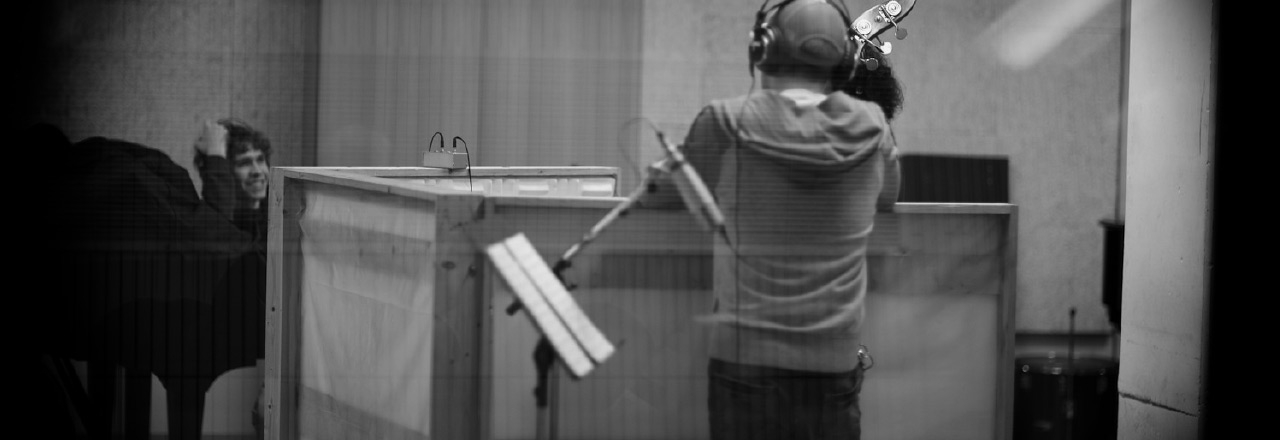Jazz at HMT Leipzig
As Germany’s oldest conservatory, the University of Music and Theatre Leipzig has been attracting students of classical music for over 160 years. Since its founding in 1969, the young Department of Jazz and Popular Music has continuously expanded this tradition and offers dedicated young musicians a first-class education with realistic career prospects.
The stylistic range spans from bebop to contemporary jazz, from Latin American music and R&B to rock and pop styles. Instruction is offered in the following areas: jazz piano, jazz trumpet, jazz trombone, jazz saxophone, jazz guitar, jazz electric bass, jazz double bass, jazz drums, percussion, jazz arrangement, and jazz/pop vocals. The program comprises eight semesters and concludes with a Bachelor’s degree. A Master’s or postgraduate (Meisterklasse) program may follow the Bachelor’s degree.
Educational Goals and Artistic Environment
The aim of the program is to nurture each student’s unique musical personality at a high artistic level. The development of instrumental and vocal expertise, alongside pedagogical, academic, and communicative skills—grounded in a broad musical education—ensures professional qualification in a diverse and continuously evolving field. Special emphasis is placed on fostering social competence.
The Jazz Department organizes university projects in cooperation with local partners such as the Leipzig Jazz Club, independent venues like Moritzbastei, Horns Erben, and naTo, as well as the Leipziger Jazztage festival. In addition, students benefit from close collaborations with local music schools and secondary schools (e.g., school concerts, classroom observations as part of their training).
Our graduates enter their careers with a comprehensive education. This includes music history classes that connect the story of jazz and popular music to present-day life, offering space for reflection on how one can position oneself and one’s work within a broader social context. The concept of improvisation is understood broadly, encompassing other musical styles and building bridges across genres. The curriculum also includes insight into the organizational aspects of professional life, time management, and strategies for increasing one’s visibility—preparing students for the full range of future career demands.
HMT ensures a diverse and thorough education through its varied teaching staff—many of whom are prominent and active figures on the music scene. Professors such as Pepe Berns, Johannes Enders, Evelyn Fischer, Werner Neumann, Eric Schaefer, Ralf Schrabbe, and Michael Wollny are known nationally and internationally for their wide-ranging projects. Notable guests at HMT festivals and workshops—such as Uschi Brüning, Greg Cohen, Julia Hülsmann, Nils Landgren, Moop Mama, Wolfgang Muthspiel, and Ernst-Ludwig Petrowsky—have further enhanced the university’s appeal.
Students can test and deepen their knowledge on numerous stages and platforms within the university, through formats like the Jazzfest, Songwerkstatt (song workshop), and StageNight. Faculty members and alumni have become integral parts of the jazz scene both in and beyond Leipzig. Those seeking a supportive and inspiring study environment will find it here—alongside an attractive housing market and affordable rents rarely found elsewhere.
Jazz-Hub Leipzig
Leipzig is a city rich in tradition yet vibrantly young, with an exceptionally lively club scene where diverse art forms converge across neighborhoods, communities, and creative intersections. In the midst of this cultural tapestry, our students have countless opportunities to put their skills into practice—whether in jam sessions, cross-genre collaborations, or on a wide range of experimental stages.
Students and graduates from the department are active in various state-level youth jazz orchestras as well as the German National Youth Jazz Orchestra (BuJazzO). Among them are recipients of scholarships from the DAAD (German Academic Exchange Service), the German National Academic Foundation, and winners of various jazz competitions. They benefit greatly from the strong sense of community within Leipzig’s local jazz scene.
A key platform for local jazz is the LeipJAZZig e.V., which hosts an annual festival. The monthly Leipzig Jazz Calendar provides an overview of all jazz and jazz-related concerts in the city. Alongside Berlin and Cologne, Leipzig ranks among the top three jazz centers in Germany.
Practice-Oriented Education
When alumni find their place within the world of jazz and popular music, it reflects the strong practical orientation of the University. Notable names include Johannes Bigge, Yvonne Catterfeld, Volker Heuken, Antonio, Robert and Simon Lucaciu, Olga Reznichenko, Philipp Rumsch, Philipp Scholz, Sascha Stiehler, and many more. Some of our graduates have even gone on to become professors themselves—Juan Garcia in Weimar, Johanna Jellici in Zurich, and Eva Klesse in Hanover.
This practical focus is supported by interdisciplinary connections and collaborations with partner institutions in Lucerne, Lausanne, and Groningen, as well as Dresden and Weimar. The university also runs its own recording studio, directed by Sebastian Bonney, and maintains partnerships with music schools, record labels, and media organizations such as MDR (Mitteldeutscher Rundfunk).
Close networks exist with local organizers, the Leipzig Jazz Club, the Leipziger Jazztage, the LeipJAZZig Festival, the Gewandhaus concert hall, the neighboring Schauspielhaus theater, the Bach Festival, the Jazzkollektiv Halle, and the Jazzclub Altenburg. Many alumni also teach at the Neue Musik Leipzig School of Jazz, Rock, Pop, and New Music.
At the Heart of the City
Housed in its historic building on Dittrichring, directly across from the Schauspielhaus theatre, the University of Music and Theatre Leipzig is located right in the city center. Few cities in Germany identify as strongly with culture as Leipzig does. The Gewandhaus Orchestra, the Opera and Ballet, the St. Thomas Choir, and the MDR Symphony Orchestra all embody the city’s rich musical heritage, seamlessly linking tradition with the present. Big names in music history bear witness to this legacy.
Events like the Bach Festival, the A Cappella Festival, and the annual Jazztage add to a cultural landscape that offers students countless opportunities for collaboration. With nearly 50 years of history, the Jazztage Leipzig is the most established and, through its innovative projects, one of the most important jazz festivals in central Germany. For over a week, it presents a rich program at venues across the city—with our students actively involved in many aspects of its production. The festival’s annual Jazz Young Talent Award has served as both recognition and motivation for many of our graduates to find their place in the independent music scene.
Leipzig is also a literary hub, home to the renowned Leipzig Book Fair. The city boasts a vibrant independent arts scene, including the euro-scene dance and theatre festival, the Film Art Fair, numerous galleries, the Grassi Museum of Applied Arts, and the Spinnerei, a former cotton mill that now serves as a dynamic center for contemporary art and the “New Leipzig School.”

